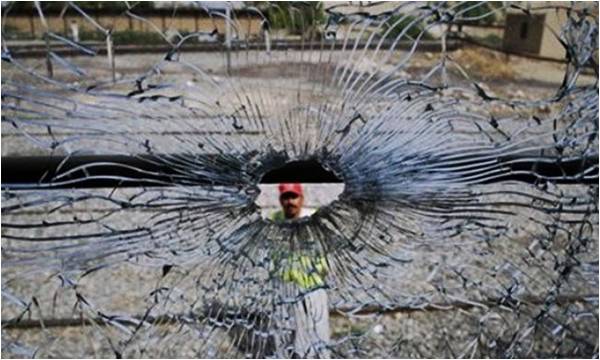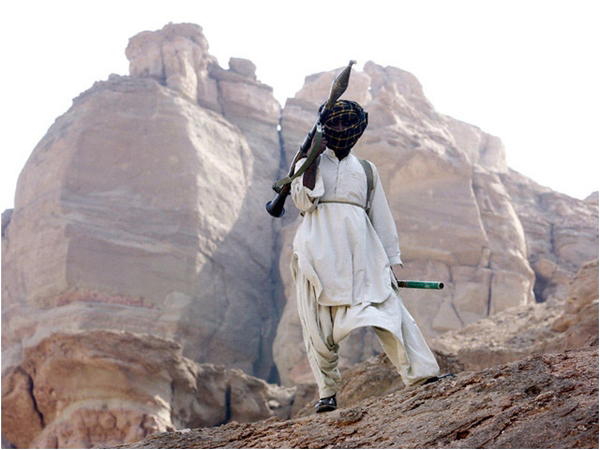
The government’s new campaign for reconciliation with Baloch insurgents has risen the hopes of the Pashtuns of Balochistan, who are the second largest ethnic group in the province.
Among the supporters of the initiative is Pashtun politician Zmarak Khan Achakzai, the deputy opposition leader in the Balochistan Assembly. “The long insurgency in the province has been worsened by a sense of deprivation among the locals, and an inclusive political system is central to achieving sustainable peace and stability,” he says. “We must focus on tackling the poverty and illiteracy that lead to frustration – the root cause of unrest in the province.”
He sees Brahumdagh Bugti’s willingness to talk as “a landmark achievement”. “Only dialogue can steer the province out of the prevailing crisis,” saysAchakzai. “Successful pacts with disgruntled groups and rebel leaders will not only help us politically, but also foil external interference and maneuvering.”
“Some groups have tried to spark a conflict between Pashtuns and the Baloch by targeting us in militant attacks, but they failed,” says Abdul Ali Khan, a tribal elder and political leader. “Pashtuns have always supported the struggle of the Baloch, but within the framework of the constitution of Pakistan.”

Public opinion has been changing after some armed groups targeted civilian locals and settlers from various ethnic backgrounds, according to Abdul Ali Khan, and there is an opportunity for the government to find a peaceful solution. “The Balochistan issue has long been swept under the carpet. It is high time we addressed the reservations of the Baloch people,” he says. “The province needs attention. It needs improvement in infrastructure, and security in almost every field of life. The government must not look at every issue only from the prism of national security.” Political settlements in Balochistan could serve as a foundation for stability and development in the entire country, he says. “Foreign powers will continue to intervene until we put our own house in order.”
Senator Jahanzaib Jamaldini, a veteran leader of Balochistan National Party’s Mengal faction, says the government must address the problems of the averageBalochistani. “A great majority of the people in Balochistan are known for their patriotism and loyalty to the country. They want peace and justice.”
The Baloch politician does not look at the issue from a strictly ethnic perspective. “The mistreatment of people and the geo-economic deprivation of the province are causing anger against the state,” he says. He praises the peace overtures from either side, but believes there are concerns about whether the civilian government has enough influence over the military to address the concerns of the Baloch.
A ‘Grand Jirga’ formed by Balochistan Chief Minister Abdul Malik Baloch to speak to the disgruntled Baloch leaders living abroad also includes Pashtun elders, the CM told reporters on August 27. The council, which will also include Baloch and Hazara elders, and other influential political leaders, will supervise the dialogue process and meet exiled Baloch leaders, he said.
Among the supporters of the initiative is Pashtun politician Zmarak Khan Achakzai, the deputy opposition leader in the Balochistan Assembly. “The long insurgency in the province has been worsened by a sense of deprivation among the locals, and an inclusive political system is central to achieving sustainable peace and stability,” he says. “We must focus on tackling the poverty and illiteracy that lead to frustration – the root cause of unrest in the province.”
He sees Brahumdagh Bugti’s willingness to talk as “a landmark achievement”. “Only dialogue can steer the province out of the prevailing crisis,” saysAchakzai. “Successful pacts with disgruntled groups and rebel leaders will not only help us politically, but also foil external interference and maneuvering.”
“Some groups have tried to spark a conflict between Pashtuns and the Baloch by targeting us in militant attacks, but they failed,” says Abdul Ali Khan, a tribal elder and political leader. “Pashtuns have always supported the struggle of the Baloch, but within the framework of the constitution of Pakistan.”

Public opinion has been changing after some armed groups targeted civilian locals and settlers from various ethnic backgrounds, according to Abdul Ali Khan, and there is an opportunity for the government to find a peaceful solution. “The Balochistan issue has long been swept under the carpet. It is high time we addressed the reservations of the Baloch people,” he says. “The province needs attention. It needs improvement in infrastructure, and security in almost every field of life. The government must not look at every issue only from the prism of national security.” Political settlements in Balochistan could serve as a foundation for stability and development in the entire country, he says. “Foreign powers will continue to intervene until we put our own house in order.”
Senator Jahanzaib Jamaldini, a veteran leader of Balochistan National Party’s Mengal faction, says the government must address the problems of the averageBalochistani. “A great majority of the people in Balochistan are known for their patriotism and loyalty to the country. They want peace and justice.”
The Baloch politician does not look at the issue from a strictly ethnic perspective. “The mistreatment of people and the geo-economic deprivation of the province are causing anger against the state,” he says. He praises the peace overtures from either side, but believes there are concerns about whether the civilian government has enough influence over the military to address the concerns of the Baloch.
A ‘Grand Jirga’ formed by Balochistan Chief Minister Abdul Malik Baloch to speak to the disgruntled Baloch leaders living abroad also includes Pashtun elders, the CM told reporters on August 27. The council, which will also include Baloch and Hazara elders, and other influential political leaders, will supervise the dialogue process and meet exiled Baloch leaders, he said.

